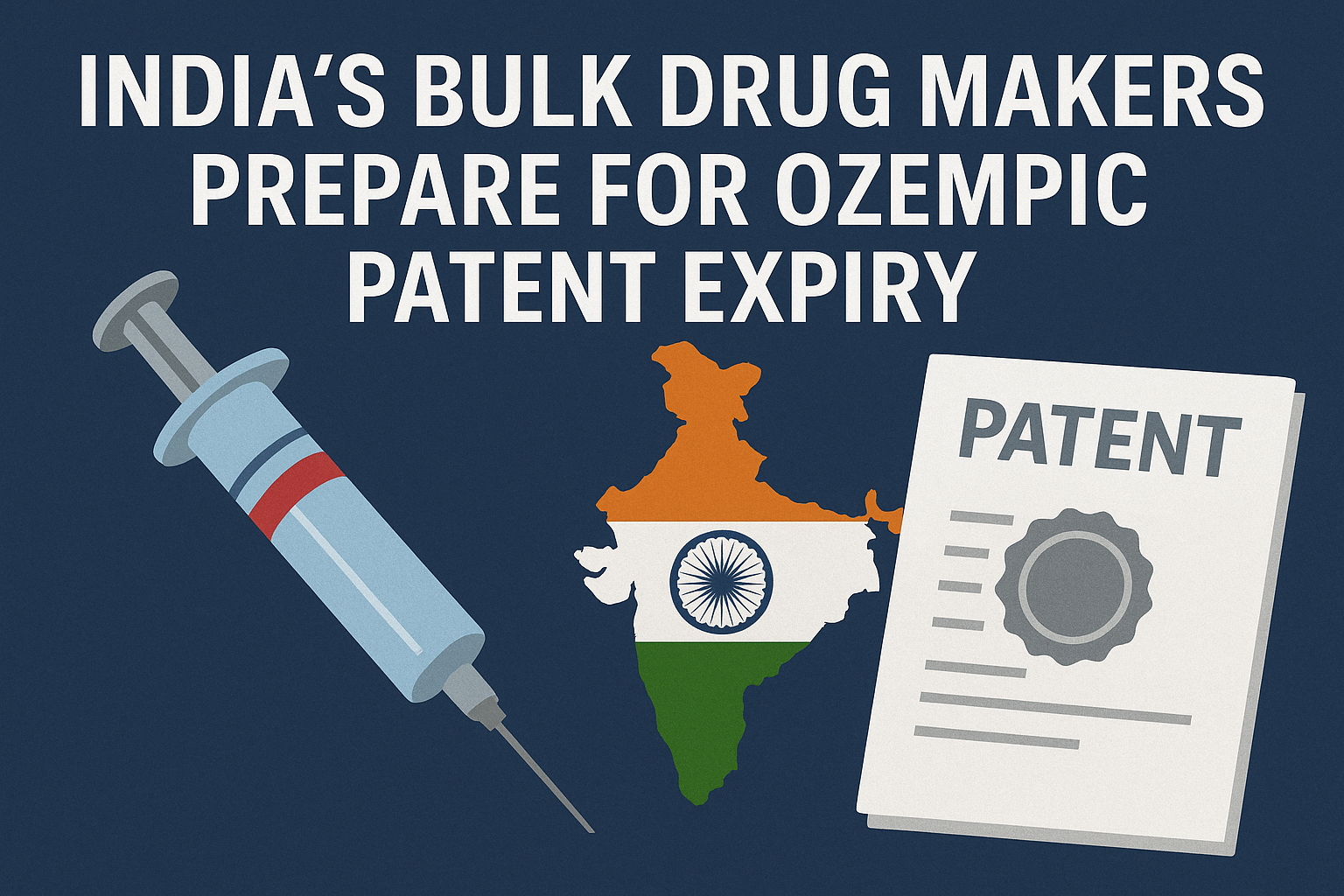API Manufacturers Eye Semaglutide Opportunity
Indian pharmaceutical companies are preparing for a major shift in the diabetes and obesity drug market. The patent for Novo Nordisk’s blockbuster drug Ozempic, which contains semaglutide, is set to expire in several key markets. This expiry is expected to open doors for generic and biosimilar players.
Indian Firms Begin Preparations
Leading bulk drug makers, including Dr. Reddy’s Laboratories and Macleods Pharmaceuticals, have started planning to manufacture the active pharmaceutical ingredient (API) semaglutide. These companies are working to scale up production to meet the expected surge in global demand.
Indian firms already play a dominant role in supplying APIs for global generics. By entering the semaglutide market, they could strengthen their position as essential suppliers in the fight against diabetes and obesity.
Market Impact of Patent Expiry
Ozempic has been a blockbuster drug for Novo Nordisk, generating billions in annual revenue. However, the loss of patent exclusivity will lower its pricing power. Industry experts expect strong competition from generics once regulators approve them.
Patients may benefit the most. Generic and biosimilar launches usually push prices down, making treatments more affordable. Governments and health insurers are also likely to welcome cheaper alternatives as global demand for obesity and diabetes drugs rises.
Challenges Ahead for Generic Makers
Despite the opportunity, developing semaglutide generics will not be easy. The molecule is complex, and ensuring consistent safety, potency, and regulatory approval will be challenging.
Regulatory agencies such as the US FDA and European Medicines Agency (EMA) will require strict quality data. Only companies with robust manufacturing systems and compliance records will succeed in this competitive space.
Global Implications
India’s preparation highlights its growing role in the global pharmaceutical supply chain. If successful, Indian companies could capture significant market share. This would boost revenues while improving global access to advanced diabetes and obesity treatments.
For Novo Nordisk, the expiry represents a critical challenge. The company may respond with new formulations, patient support programs, or fresh patents to protect its market share.
What Lies Ahead
The coming years will determine how quickly Indian firms can scale production and navigate regulatory pathways. Market watchers expect the first generic launches soon after the patents expire, depending on jurisdiction.
If Indian companies succeed, the semaglutide story could mark another milestone in the country’s role as the “pharmacy of the world.

